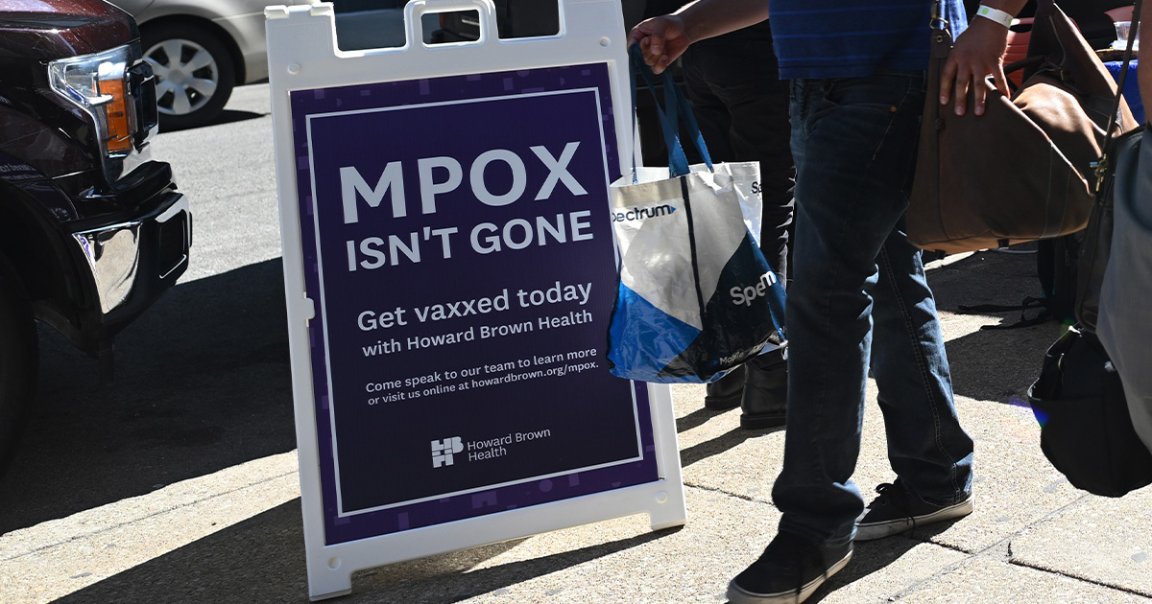
For the second time in just over two years, the World Health Organization has declared an outbreak of mpox, formerly known as monkeypox, a global emergency.
As the New York Times and other outlets report, this second outbreak has already resulted in 14,000 cases and 524 deaths in the Democratic Republic of Congo (DRC) alone.
Compared to the 100,000 people worldwide who contracted mpox and roughly 200 who died from it in 2022, this year’s strain of the virus — which like its predecessor can cause lymph swelling, fever, respiratory symptoms, muscle aches, and rashes — is significantly more virulent.
Both in 2022 and this year, Congo’s specific strains of mpox have been more severe, the NYT notes. In that country, however, this year’s outbreak seems to be even worse, with a death rate of roughly three percent compared to the 0.2 percent death rate back in 2022.
Thus far, mpox has spread to 13 countries on the African continent, though as the Associated Press notes in its reporting, 96 percent of them are in the DRC.
WHO director-general Tedros Adhanom Ghebreyesus said in a media briefing that the rapidity of spread this time around is concerning, especially because women and girls are now the most at-risk groups for contracting the primarily sex-spread disease that previously was mostly contained to gay and bisexual men.
“The detection and rapid spread of a new clade of mpox in eastern DRC, its detection in neighboring countries that had not previously reported mpox, and the potential for further spread within Africa and beyond is very worrying,” Ghebreyesus.
The current strain of mpox was detected for the first time last year, the NYT notes, and was found to be equally occurrent in both men and women for the first time. It seems to have mutated, per genetic analyses, sometime in September to become more easily spread, and has done so in part due to heterosexual sex work.
Thus far, this strain has not yet been detected outside of Africa, and with the DRC approving two new mpox vaccines geared towards this outbreak earlier in the summer, epidemiologists are hoping it’ll stay that way.
“This outbreak has been smoldering for quite a long time, and we continually have missed opportunities to shut it down,” Nicole Lurie, the executive director of the vaccine-financing nonprofit Coalition for Epidemic Preparedness Innovations, explained in an interview with the NYT. “I’m really glad that everybody is now paying attention and focusing their efforts on this.”
Indeed, given that the virus continued to spread to the point that it mutated to become more virulent and deadly, it seems clear that some opportunities to contain it must have been missed.
More on virulence: Deranged Politicians Are Trying to Ban Wearing Masks